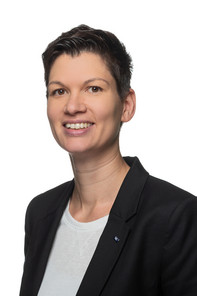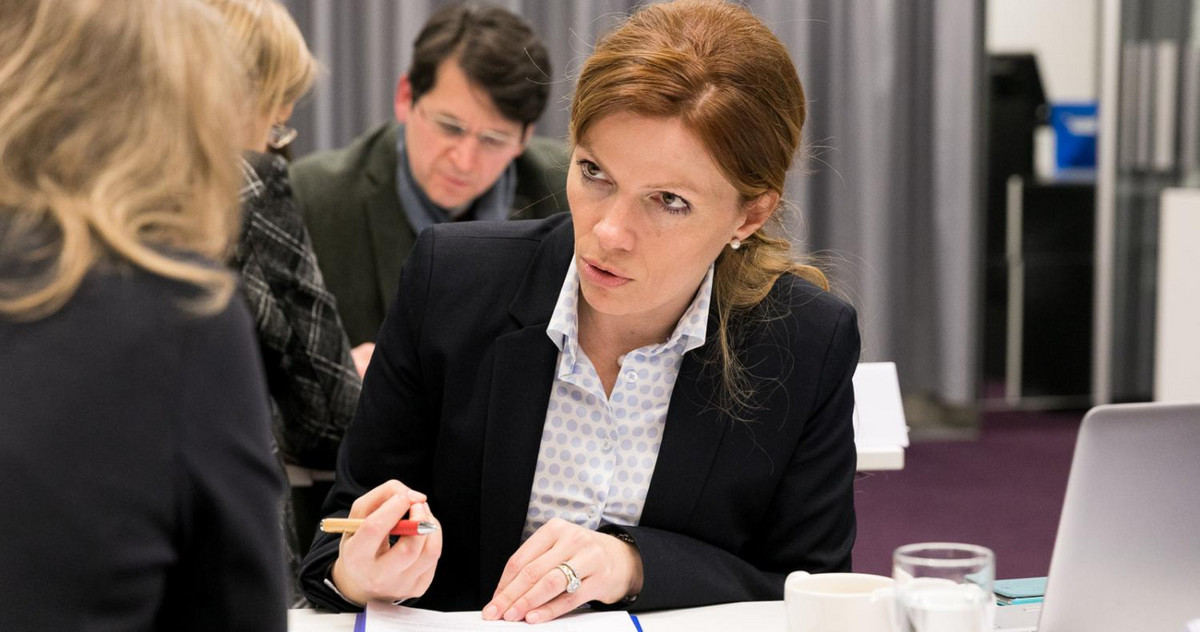Overview
Recommendations
Next Steps
Social media
There's much to be learned in the new year
Transformation, new leadership roles, agile organizations: in today’s highly complex and dynamic VUCADD* world, enterprises have to adjust their business approach, adapt to changing circumstances, and actively shape innovation in order to become truly agile. But for this to happen, new impulses and a novel approach to learning will be needed. Astrid Kleinhanns-Rollé, Managing Director of the WU Executive Academy, and Helga Pattart-Drexler, Head of Executive Education, present the six key trends in executive education for 2020.

In the same way that enterprises were managed hierarchically in the 20th century, teaching was a top-down process, with lecturers imparting information to learners. In today’s world of work, however, individuals are expected to take on significantly more responsibility: “In the future, a self-responsible approach to learning will be called for: employees must know what, how, when, and where they can most effectively learn,” Astrid Kleinhanns-Rollé explains. As digitalization progresses, learning is no longer bound to a specific time and place. What is more, the easy access to a wealth of information shines a light on the key role of learners’ intrinsic motivation: “Many people are interested in new topics, disciplines, and professionals outside of their own fields or want to develop innovative approaches to problem-solving,” Helga Pattart-Drexler says.
Building a brand as a learner is also a crucial step in developing one’s career: “People present themselves as a personal brand on social networks such as LinkedIn,” Astrid Kleinhanns-Rollé points out. Helga Pattart-Drexler confirms this observation: “It is getting increasingly important to know one’s strengths and make them visible to others,” she says.
In today’s knowledge society, we do it every day: we learn throughout the whole work day, whenever we need to, and often on the spot, by asking colleagues about their opinions or for information, watching video tutorials, or reading online articles on a topic we are currently interested in. Social networks and collaboration tools help us find missing pieces of information and small chunks of knowledge. This way, they facilitate a process called “instant micro-learning,” i.e. acquiring small amounts of learning content on demand. What remains important for employees is the ability to apply their newly acquired skills to their jobs – and demonstrate this to their employers by using their skills in practice or presenting course certificates of short trainings or online webinars. “Participants learn just in time, on demand, and as conveniently as possible,” Astrid Kleinhanns-Rollé says.

The flipped classroom concept is gaining in popularity: ahead of a workshop module, participants receive knowledge snippets, i.e. input through text, audio, video, or webinar-format files containing little chunks of knowledge, via a digital and virtual platform. In the module’s class sessions, participants then mostly learn from each other: together they discuss and reflect on what they have learned.

Astrid Kleinhanns-Rollé
Especially peer-to-peer formats are crucial to provide positive impulses, keep learning motivation high, and encourage learners to reflect on the contents discussed. By asking others for feedback, you will learn a lesson or two about yourself.
Whether we work in manufacturing, the knowledge industry, or services: the changing world of labor requires digital and social competences. Employers must step up their efforts in training staff how to deal with robots, digital and virtual communication, product innovations, and taking on new roles in a team or the management ranks. In this sense, digital literacy is not only about being able to surf the internet and use collaboration tools, it also encompasses the knowledge needed to find, process, analyze, and produce data and information using digital tools. On top of that, the demand for new, hitherto unknown competences and professions is constantly rising. How to deal with data flows, or the occupation of a data scientist are only two examples. “The skills employees can actually use are what’s important; it is not about a one-time, formal education. Present-day further education formats have to accommodate these new requirements,” Astrid Kleinhanns-Rollé says.
Empathy, being a team player, intrinsic motivation, the ability to handle conflicts, resilience: soft skills are gaining in importance against the backdrop of the complex and vaguely defined challenges of today’s professional world. More and more, future-proof learning means to zero in on personality development. This is the case for formal (further) education as much as for executive education. Agile work styles and purpose-driven organizations require people with an adequate inner constitution, who easily adapt to learning situations and are open to new things, curious and willing to experiment, and who have the expertise to manage relevant tools and methods. “In order to be able to pull one’s weight in a transforming organization, personal growth is vital,” Astrid Kleinhanns-Rollé says.

Helga Pattart-Drexler
Compared to the past, 2020 will be more about soft topics, because organizations want and have to strive for a higher degree of maturity – which also means that they have to develop their staff. We might be using many digital tools and robots, but we are also still dealing with human beings.
According to her, we should not lose sight of how we treat each other and how we want to collaborate. Staff members not only require an agile mindset, i.e. the capacity to think on their feet and outside of the box, but also a great deal of competence in handling ambiguity. “They have to be able to tolerate contradiction.” When it comes to personal development, executives increasingly act as important sparring partners for their employees, Helga Pattart-Drexler emphasizes.

The times in which graduation marked the end of learning are long gone. Career paths are getting more colorful and flatter hierarchies enable so-called “spiraling careers” in which people take steps up and down the ladder to keep learning. In this approach, nobody is ever done learning and more intense learning phases are part of one’s career. This requires more orientation and support in the shape of counselling and coaching. “Given the broad range of learning offers available today, learners need significantly more guidance than in the past,” Astrid Kleinhanns-Rollé says. “Helping them select the appropriate learning content will become a core competence of educational institutions.”
The WU Executive Academy also keeps its finger on the pulse with its further education programs. For more information about the programs, please click here.
*VUCADD = Volatility, Uncertainty, Complexity, Ambiguity, Dynamics & Diversity